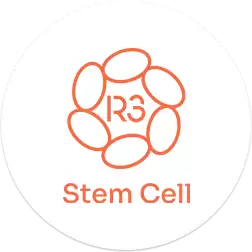Hypothyroidism is a condition that affects the functioning of a patient’s thyroid gland. It can cause the thyroid gland to produce an inadequate amount of thyroid hormone, leading to a wide range of symptoms all over the body. Stem cell therapy is now being considered as a new way to heal a damaged thyroid gland and restore its proper function, eliminating the need for constant hormone therapy.
What is Hypothyroidism?
Hypothyroidism, also called underactive thyroid, is a condition in which the body doesn’t produce enough thyroid hormone naturally. The thyroid is a small, butterfly-shaped gland that sits at the front of your neck. It releases hormones to help your body regulate itself and utilize energy. Your thyroid is responsible for providing energy to nearly every organ in your body. It controls certain functions like how fast or slow your heartbeats, and how your digestive system works. Without the right amount of thyroid hormones, your body’s natural functions will begin to slow down and lead to health complications.

Hypothyroidism affects women more frequently than men. It commonly affects people over the age of 60 but can begin at any age. It may be discovered through a routine blood test or after noticeable symptoms begin. Hypothyroidism may not cause any noticeable symptoms in the early stages of the disease. Over time, untreated hypothyroidism can cause several health complications, like obesity, joint pain, infertility, and heart disease. The signs and symptoms of hypothyroidism will vary, depending on the severity of the hormone deficiency and a patient’s health.
Problems tend to develop slowly, often over some years. At first, you may barely notice the symptoms of hypothyroidism, such as fatigue and weight gain. But as your metabolism continues to slow, you may develop more obvious signs and symptoms. Hashimoto’s disease is an autoimmune condition that is the most common cause of hypothyroidism. Your immune system is designed to protect your body’s cells against invading bacteria and viruses. When unknown bacteria or viruses enter your body, your immune system responds by sending out helper cells to destroy the foreign cells.
Sometimes, your body will confuse normal and healthy cells with invasive, foreign cells. This is called an autoimmune response. If the autoimmune response isn’t regulated or treated, your immune system can attack healthy tissues. This can cause serious medical issues, including conditions like hypothyroidism. Hashimoto’s disease attacks your thyroid gland and causes chronic thyroid inflammation. The inflammation can reduce thyroid functions. It’s common to find multiple family members with this same condition, as there is a strong genetic component.
How Can Stem Cell Therapy Relieve Hypothyroidism Symptoms?
Stem cell therapy is becoming increasingly more common, as researchers strive to find new uses for it every day. Hypothyroidism is another condition that may benefit from stem cell therapy. In the lab setting, researchers can stimulate better functioning in damaged thyroid glands that no longer release the proper amount of thyroid hormone. This therapy method may one day be available to patients suffering from a decreased amount of thyroid hormone due to hypothyroidism.
Contact US

Dr. David Greene
MD, PhD, MBA
Dr. David Greene, MD, PhD, MBA, is a pioneering leader in regenerative medicine and healthcare marketing. As a residency and fellowship-trained orthopedic surgeon, Dr. Greene transitioned from clinical practice to become the founder and CEO of R3 Stem Cell and US Lead Network, where he has revolutionized patient care and medical practice growth through innovative therapies and digital marketing strategies. He has authored two influential books on healthcare internet marketing, ranks among the top expert authors globally, and has been featured on the cover of Corporate Vision magazine for his impact on global regenerative therapies. Beyond his professional achievements, Dr. Greene is passionate about education, compassion, and continuous innovation.

Sorry, the comment form is closed at this time.